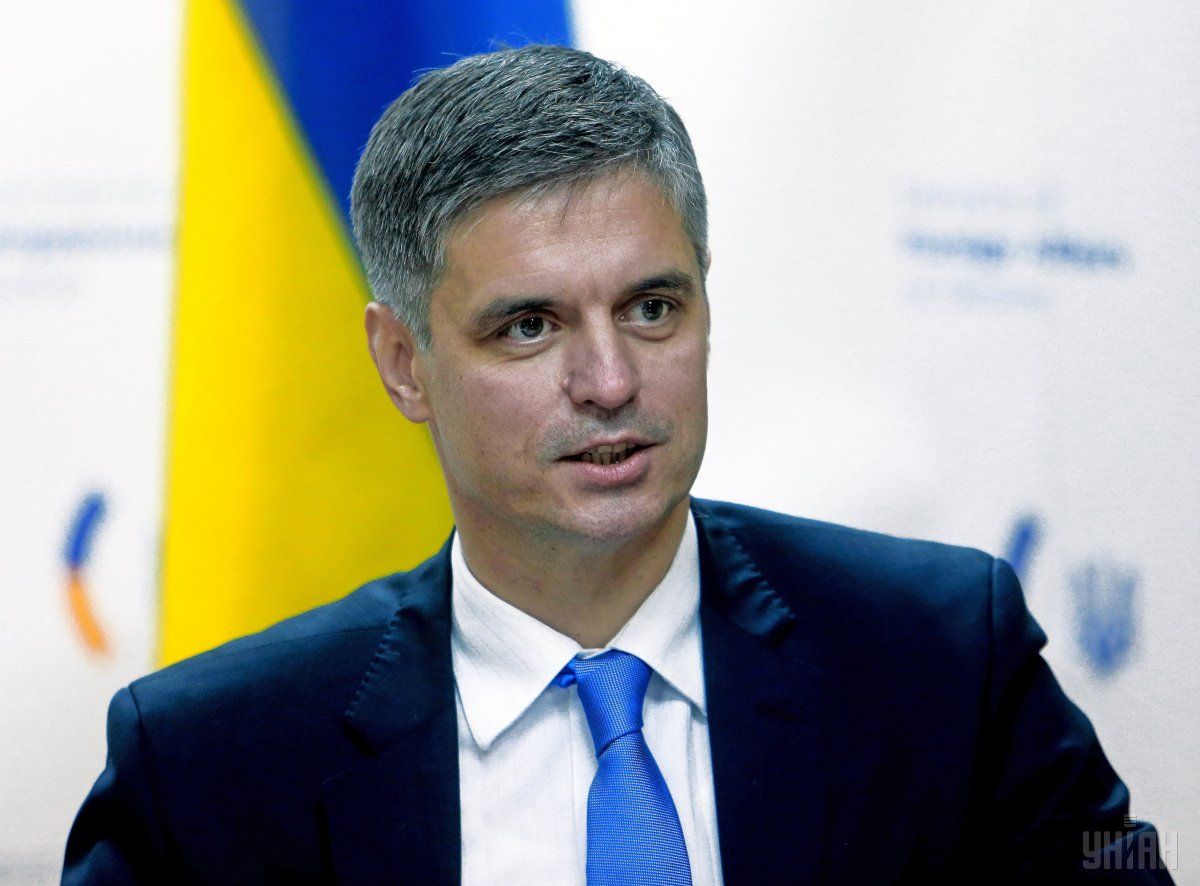
Head of Ukraine's Mission to the North Atlantic Treaty Organization (NATO) Vadym Prystaiko notes that the blocking of meetings of the NATO-Ukraine Commission (NUC) by Hungary annoys the Alliance no less than Ukraine.
Hungary's proposal to unblock the NUC meetings cannot be called a compromise, Prystaiko told journalists on the sidelines of the meeting of NATO defense ministers in Brussels.
"The proposal put forward, conditionally speaking, by a Hungarian party on how they see the possibility that they step back and unblock [NUC meetings], in my opinion, is no compromise. This is a demand, this is direct and immediate pressure," the diplomat said.
"The things the Hungarian side says – that until they receive legally binding documents that our law will not be implemented – I just do not see a subject of the conversation given the tone," said Prystaiko.
According to the diplomat, the Ukrainian side proposes to resolve the issue within the framework of the Annual National Program of Cooperation with NATO (ANP) for 2018.
Read alsoU.S., NATO urge Hungary, Ukraine to settle language-law dispute – mediaPrystaiko says that the Hungarian side insists that Ukraine's education law violated certain provisions of the previous ANP for 2017, where Ukraine had assumed an obligation to protect the interests of all national minorities. He stressed that Ukraine had understood the position of the Hungarian side and recommendations of the Venice Commission, and was ready to include these recommendations in the ANP for 2018.
He added that the discussion of the unblocking of the NUC meetings by Hungary will be one among the issues put on the agenda of the forthcoming meeting between Ukrainian President Petro Poroshenko and NATO Secretary General Jens Stoltenberg [the latter on Feb 13 announced an intention to meet with Poroshenko later this week in the framework of the Munich Security Conference].
According to Prystaiko, on Feb 13, Stoltenberg confirmed that NATO was disappointed with the situation and would like to see the blocking ceased as soon as possible. The Alliance also counts on the swift settlement of the issue. "One of the tasks of the president and secretary general is to exchange views on how to do this, what proposals [ to put forward] and what the Ukrainian side is ready for," Prystaiko said.
"The president will also discuss the prospects for holding the NATO-Ukraine Commission meeting at the level of heads of state and government during the NATO summit in Brussels in July this year," the ambassador added.
According to Pristayko, as of today, no options are considered in case the NUC meeting does not take place. "We do not have any plan on what we will do if it does not take place because we believe it will. In April, we plan to hold a meeting of foreign ministers and the NUC meeting at the level of foreign ministers. Klimkin will come to attend. I hope that by this time we will have managed to jointly solve the Hungary problem, which annoys NATO no less than it does Ukraine, believe me," Prystaiko stressed.
Read alsoKyiv, Budapest to find solution to unlock NATO-UA Commission ministerial-level meetingAt the February meeting of NATO defense ministers, the NUC will not be meeting. Prystayko said that the Ukrainian side had noted this with regret. "And we are really concerned because last time we met in this format was back in 2016. For a country that is at war, defending itself, military-wise in this particular case, failing to meet at the level of heads of military agencies is simply missed opportunities, we believe," said Prystaiko.
As UNIAN reported earlier, the new law on education, which entered into force on September 28, 2017, introduces a 12-year secondary education system in Ukraine with Ukrainian being used as the language of tuition. Children of national minorities can be taught in their mother tongue at classes (groups) along with the national language.
Read alsoUkraine's key to NATOYet, Poland, Romania, Hungary, Greece and Bulgaria expressed concern over the language provisions of Article 7 of the law.
The Venice Commission issued recommendations on December 8, 2017, that the Ukrainian authorities should balance the provisions of the language article.
Ukraine's Ministry of Education and Science proposed three options for the implementation of Article 7, which will be stipulated in a draft law on general secondary education. A respective bill is expected to be submitted to the Verkhovna Rada for consideration this spring.
Read alsoMFA says Ukraine needs reform to be considered as candidate for NATO membershipOn Feb 7, Deputy Minister of Foreign Affairs of Ukraine Vasyl Bodnar, following his trip to Zakarpattia region, said he had agreed with the Hungarian side on ways to settle the "language issue" in the region's educational facilities.
In turn, the Hungarian Ministry of Foreign Affairs denied the claim that such an agreement had been reached.
Read alsoHungary blocks NATO-Ukraine Defense CommissionOn February 13, Jens Stoltenberg called on Kyiv and Budapest to resolve the conflict over the law on education so that the meetings of the NATO-Ukraine Commission could be unblocked.

